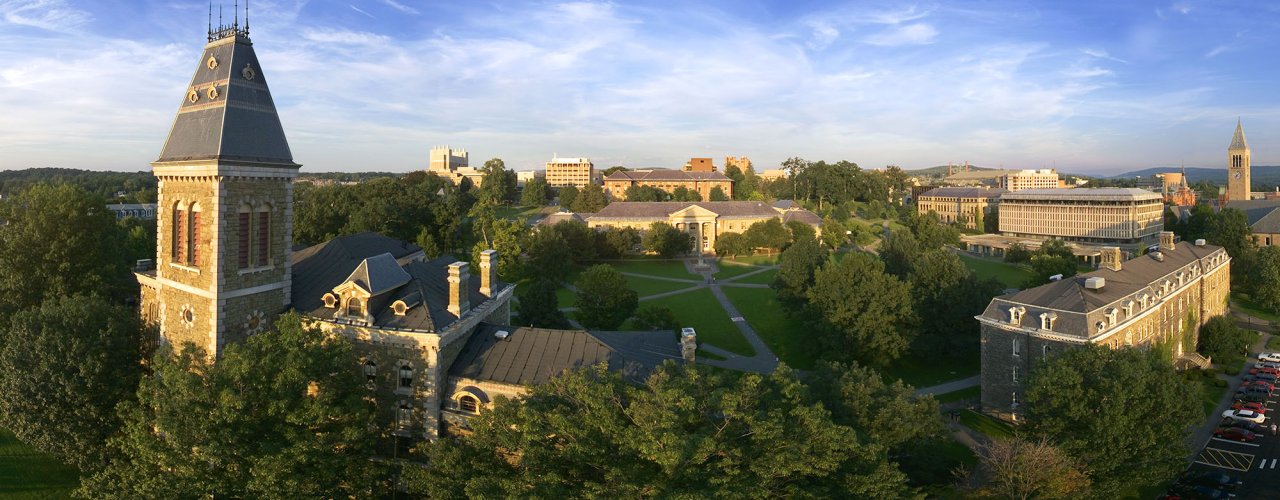Academic Integrity and Undue Foreign Influence: Guidelines
A Message to Cornell University Faculty
From Wendy W. Wolford, Vice Provost for International Affairs, and Emmanuel P. Giannelis, Vice Provost for Research
Dear colleagues,
In recent months, several U.S. federal agencies—including the National Institutes of Health (NIH), the National Science Foundation (NSF), the Department of Defense (DoD), and the Department of Energy (DoE)—have expressed growing concerns about foreign influence on the integrity of research conducted in or for U.S. institutions. Increased scrutiny of China’s activities in the United States has been the main focus of this concern.
In response to these perceived threats from foreign governments, NIH published a “Dear Colleagues” letter on August 20, 2018(link is external) that focused on potential threats to the integrity of U.S. biomedical research, including diversion of intellectual property in grant applications, sharing of confidential information from grant applications by NIH peer reviewers, and failure by some researchers working at NIH-funded institutions in the United States to disclose resources from other organizations. The DoD and DoE have expressed concerns about U.S. participation in “China’s Talent Programs”—Chinese government-sponsored programs with a goal to recruit and sponsor skilled scientists to advance China’s science and technology agenda. New policies and regulations are being promulgated by these agencies to ensure disclosure of U.S. participation in these programs.
It is important that this increased scrutiny over foreign activities in federally sponsored research does not result in a chilling effect on Cornell’s existing and future international collaborations and research. We do not condone threats to academic freedom or discrimination against any person based on ethnicity or national origin. As President Pollack affirmed in a recent opinion piece(link is external), Cornell is an international university with a strong commitment to global engagement, an appreciation of intercultural differences, and a spirit of collaboration for mutual benefit. We are a diverse community of students, researchers, and faculty representing more than 90 countries. International students are significant and valued members of the Cornell community. Visiting international scholars and those who host our own students and faculty abroad further enhance Cornell’s global reach.
“Cornell takes pride in its identity as a place of openness, where research is publicly presented and published without restriction, and where faculty members are free to pursue research of their choosing and have the right to choose individuals, including collaborators, with whom to work on research projects.”
This culture of openness and diversity is at the heart of what makes Cornell both excellent and distinctive, and it is critical to advancing research and scholarship. Cornell takes pride in its identity as a place of openness, where research is publicly presented and published without restriction, and where faculty members are free to pursue research of their choosing and have the right to choose individuals, including collaborators, with whom to work on research projects.
While our commitment to global engagement remains unchanged, there are certain steps that Cornell and other U.S. universities must take to ensure compliance with existing regulations and requirements and to promote transparency of research activities. Below, we provide guidance on required and recommended best practices for Cornell faculty and staff to help you understand and meet government expectations of compliance and transparency. We then describe the resources available on campus to help you build successful collaborations abroad.
“While our commitment to global engagement remains unchanged, there are certain steps that Cornell and other U.S. universities must take to ensure compliance with existing regulations and requirements and to promote transparency of research activities.”
Cornell provides these requirements, recommendations, and resources, which apply to work with foreign collaborators generally, whether in Ithaca, New York City, or abroad:
Working, studying, and collaborating internationally offer benefits and opportunities, many of which are crucial to a world-class university such as Cornell, but the landscape can be unpredictable and overwhelming.

